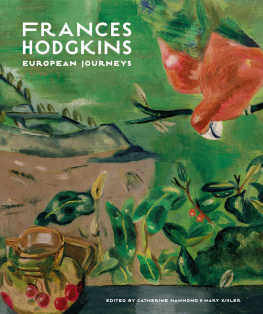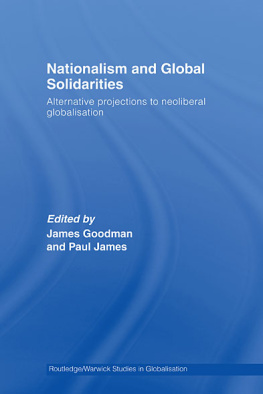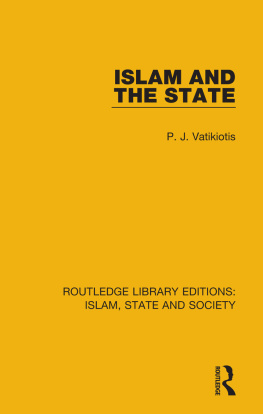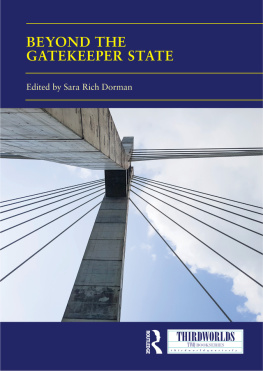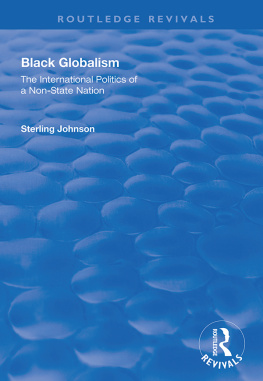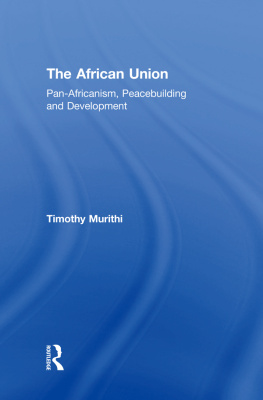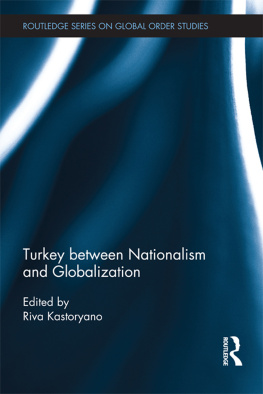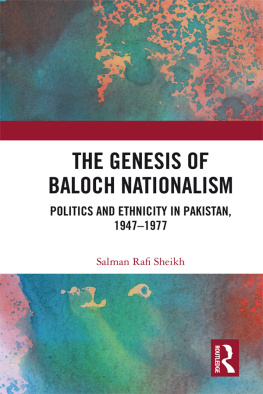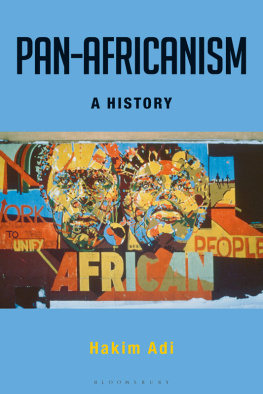
Michael Amoah is a Visiting Fellow at the Firoz Lalji Centre for Africa, Institute of Global Affairs, The London School of Economics and Political Science. He is the author of Nationalism, Globalization and Africa; A Decade of Ghana and Reconstructing the Nation in Africa (I.B.Tauris).
Michael Amoah's new book is a significant interrogation of Pan-Africanism in an era where the forces of nationalism and globalism compete and ruin the prospects of stability, progress and unity. In a series of case studies, Amoah lets us know that no romanticism will save Pan-Africanism; nor will elite and long-lasting presidentialisms; but that the very idea of Pan-Africanism must take into account corruptions within and competitive forces without.
Stephen Chan OBE, Professor of International
Relations, SOAS University of London
Michael Amoah takes a dispassionate look at approaches to political problems adopted by African states, under the auspices of the African Union. His discussion of what he calls the new pan-Africanism emphasizes its pragmatic qualities romantic notions of the first generation of African leaders have been largely set aside. He is particularly interested on how notions of the nation state relate to institutions of global governance, and the ways which sitting heads of state manipulate constitutions to remain in power. Where international pressures are applied by other African states, they are limited in scope, and are likely to be compromised by the fact that the heads of state of the countries involved are also doing all they can not to be removed from office. Amoah's clearly written book is a good antidote for overblown claims about the emergence of African developmental states or a continent-wide renaissance. It is a timely and sobering read.
Tim Allen, Professor of Development Anthropology,
London School of Economics
The book sets a scene for an important discussion on a much-needed alteration of political infrastructure of the African continent.
Thembisa Fakude, Researcher, Research Centre,
Al Jazeera Center for Studies

Published in 2019 by
I.B.Tauris & Co. Ltd
London New York
www.ibtauris.com
Copyright 2019 Michael Amoah
The right of Michael Amoah to be identified as the author of this work has been asserted
by the author in accordance with the Copyright, Designs and Patents Act 1988.
All rights reserved. Except for brief quotations in a review, this book, or any part thereof,
may not be reproduced, stored in or introduced into a retrieval system, or transmitted,
in any form or by any means, electronic, mechanical, photocopying, recording or
otherwise, without the prior written permission of the publisher.
Every attempt has been made to gain permission for the use of the images in this book.
Any omissions will be rectified in future editions.
References to websites were correct at the time of writing.
ISBN (HB): 978 1 78453 331 1
ISBN (PB): 978 1 83860 049 5
eISBN: 978 1 83860 048 8
ePDF: 978 1 83860 051 8
A full CIP record for this book is available from the British Library
A full CIP record is available from the Library of Congress
Library of Congress Catalog Card Number: available

CONTENTS
LIST OF MAPS
Political Map of Africa.
Map of Burkina Faso.
Map of Burundi.
Map of the Central African Republic.
Map of Democratic Republic of the Congo.
Map of Libya.
Map of Mali.
Map of Rwanda.
Map of South Sudan.
PREFACE
Nationalism is an expression of one's identity. Every individual has an identity; it is impossible not to have one. Each individual is also a citizen of the globe irrespective of their identity. Also, they interact with others or refuse to interact based on that identity, perceived or real. A state of belonging is therefore a universal attribute. Global society is politically arranged in the form of national identities, hence the most pervasive identity document being the passport. Consequently, the global citizen's endeavour to have nationality is as persistent as the justification for the continuity of the nation state in the era of globalism and globalization. There will always be inter-national relations, and, with that, the politics of nation-groups or supranationalism, hence the unending discussion on the continuity or viability of the nation state in a globalized web of dependencies and interdependencies. Herewith, so long as country-specific institutional maladies, such as the global financial downturn generated by Wall Street, can generate a globalized domino effect, each country's matter is necessarily everyone's matter on the globe. Therefore, it is incumbent on institutions of global governance not to ignore individual nation state problems as if they were separate from global ones. To that effect, the age-old United Nations Security Council (UNSC) as an institution of global governance attends to almost every conflict across the globe regardless of the cause and increasingly so in an era of heightened globalism, conflicts and interconnected impacts.
The central theme of this book is how extended periods of rule by particular African heads of state have either precipitated or contributed to conflict or political crisis in their respective countries, generating attention and resolutions from the international institutions of global governance. The New Pan-Africanism is Africa's answer to the systems and institutions of global governance when it comes to handling African crises, which for a working definition, could be put simply as pragmatic doses of case-by-case solutions to real-time African problems, taking into account the live geopolitical issues, the wider context of international politics and lessons from the historical context. The issue of heads of state prolonging their presidencies by constitutional manoeuvres, elections or other means is a major cause of conflict on the African continent. What currently prevents the African Union (AU) from dealing with the problem is that a large number of African heads of state are themselves guilty, and do not want to tackle the issue head-on.
This book examines the evolution of the New Pan-Africanism by exploring a number of key cases. The discussion of the New Pan-Africanism, in the context of international politics and institutions of global governance, tests the viability of the nation state in a globalized world, addressing conflict situations in Africa that are nationalized and globalized at the same time. It also explores what has been Africa's response to each political crisis within the context of international politics, in other words, what amounts to the New Pan-Africanism.
While the New Pan-Africanism may have begun with the launch of the AU in July 2002, it is the period from the last quarter of 2010 to the present day that forms the time frame for the eight selected case studies in this book. The international response to Cte d'Ivoire's general elections in OctoberNovember 2010 (discussed at length in chapter 5 of my Nationalism, Globalization, and Africa (2011)) and the 2011 Libyan Civil War that erupted during the Arab Spring both generated peculiar dilemmas which have contributed to shaping the New Pan-Africanism.
Each country case study in this book revolves around a chosen presidential personality who has governed over a period of at least two presidential terms and intended to extend or has already extended their presidency, and the political crisis generated as a consequence. Hence the narrative in each case begins with a snapshot or concise summary of the state of nationalism in that country; followed by the political context prior to the ascent of the chosen presidential personality under discussion; followed by what ensued in their tenure that generated the political crisis or conflict; followed by what ensued during and/or after the crisis, plus how the New Pan-Africanism has unfolded in each case, or what Africa is doing to fix or resolve the crisis. Each case study includes analyses of the international political economy and the accompanying security challenges. The background to the newest African country, South Sudan, prior to its secession from Sudan and independence on 9 July 2011, has been treated in Amoah (2011, pp. 4761) and is therefore not repeated in this book.
Next page

